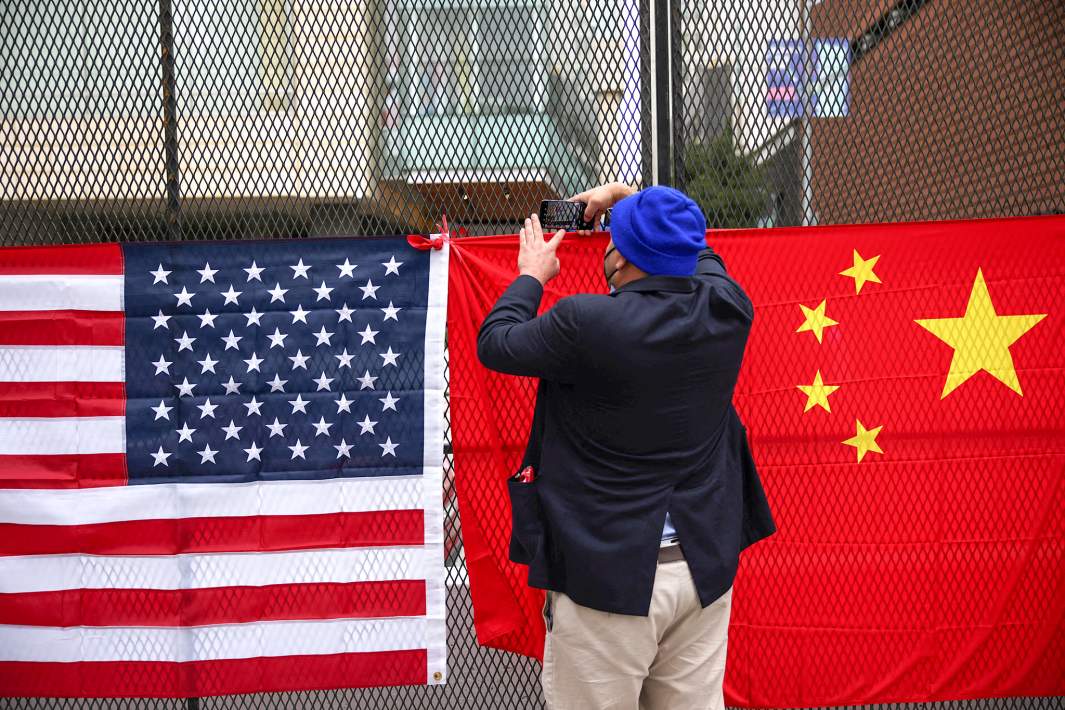
Last warning. China could squeeze America after new threats
The US Treasury Secretary Janet Yellen concluded her visit to China by issuing a warning: if you persist in doing business with Russia, we will create difficulties for Chinese banks. Beijing responded with restraint, but made it did make clear that they also have a response. Observers are confident that China is carefully examining the situation and will act precisely to prevent escalation. However, if the United States crosses the line of what is permitted, China will respond decisively.
The statement by the head of the US Treasury was unusually straightforward. This occurred on the same day that Russian Foreign Minister Sergei Lavrov flew to China for negotiations. The main weapon against internationally operating banks is the ability to cut off their access to dollars, which poses a serious threat to any credit institution operating globally.
Previously, Americans were more cautious in their statements and preferred to work exclusively with foreign banks that cooperate with Russian counterparts. According to experts, information about cash and commodity flows between China and Russia is accessible to Western regulators, even if the counterparties do not use SWIFT.
Yellen warned that banks facilitating significant transactions to supply the Russian defense industrial complex with military or dual-use goods risk US sanctions.
In other words, Washington is signaling that material support for Moscow in the Ukrainian crisis will be punished. Beijing has responded carefully but unambiguously through state media. An article in the Global Times which always reflects the official governement position stated that the Chinese government will not overlook these threats. Sanctions for conducting regular business with Russia are unjustified, and countermeasures will be taken soon.
In 2018-2019, the United States and China engaged in a trade war, which primarily hurt the US. The prices of intermediate products and components that American companies imported from China for their own production increased significantly. Rough estimates suggest that the economic downturn resulted in the closure of approximately 2,000 companies and the loss of around 500,000 jobs.
In mid-2023, a 'chip war' erupted as the US and Europe restricted the transfer of technology and sale of semiconductors to China. In response, Beijing tightened exports of rare earth metals, including gallium and germanium, which are crucial for high-performance chips, fiber optic cables, and solar panels. He has also prohibited the use of American Micron Technology (MT) products in the country's critical infrastructure. MT is one of the leading manufacturers of memory chips.
Restrictions on the export of rare earth metals have impacted various industries including aerospace, military, new energy batteries, nuclear, and submarines. If China continues to tighten these restrictions, the United States, particularly its military-industrial complex, will experience a slowdown in development. Zhao Zelin, an expert at the Faculty of Economics of RUDN University, highlights this issue and suggests that there is room for the response to expand.Zhao Zelin, an expert at the Faculty of Economics of RUDN University, highlights this issue and suggests that there is room for the response to expand.
. The primary example the export key raw materials, followed by their use in light industries such as mechanical products, furniture, and cars.
Both sides are proceeding cautiously with mutual countermeasures. The US is implementing a policy of targeted sanctions against Chinese companies, either through the Ministry of Finance or the Ministry of Trade. Ilyas Zaripov, associate professor of the Department of Global Financial Markets and Fintech at the Russian Economic University, notes this approach as 'shallow injections'.
In early April, export sanctions were announced against a group of companies accused of assisting Russia and Iran in the supply of military and dual-use products. The list includes six Chinese companies. In February, Beijing added two large American corporations, Lockheed Martin Corporation and Raytheon Missiles & Defense (RMD), to its “unreliable” list for selling weapons to Taiwan.
Sharp measures are not typical for Beijing, even when taking action against American business structures. Their main task is to protect their companies from possible losses. Economists believe that Beijing will continue to act selectively, targeting industries and companies that will have minimal negative effects on China itself.
For instance, China has the ability to restrict the United States and its allies' access to materials and technologies used in the automotive industry, particularly in the production of electric vehicles. Additionally, it can halt the supply of rare earth metals, such as lithium and cobalt, as it is the world's leading exporter of these goods (60 and 65 percent, respectively). These components are essential in the production of batteries and devices for controlling unmanned vehicles,” as highlighted by Zaripov.
Despite attempting to dictate its position to Beijing by determining basic economic conditions, Washington is unlikely to be able to impose serious sanctions against China due to its integration into the world economy and the United States' dependence on Chinese goods.
Regarding the Russian-Ukrainian conflict, Beijing will continue to maintain a balanced position.China will remain neutral on the issue of the conflict between Russia and Ukraine, despite the 'warning', according to Zhao Zelin.
China will protect its economy while avoiding excessive harshness, as it has just begun to recover. However, if there is a real threat, Beijing will take decisive action to protect its companies operating in foreign markets. The legislative framework and legal mechanisms for a quick response have already been prepared.
